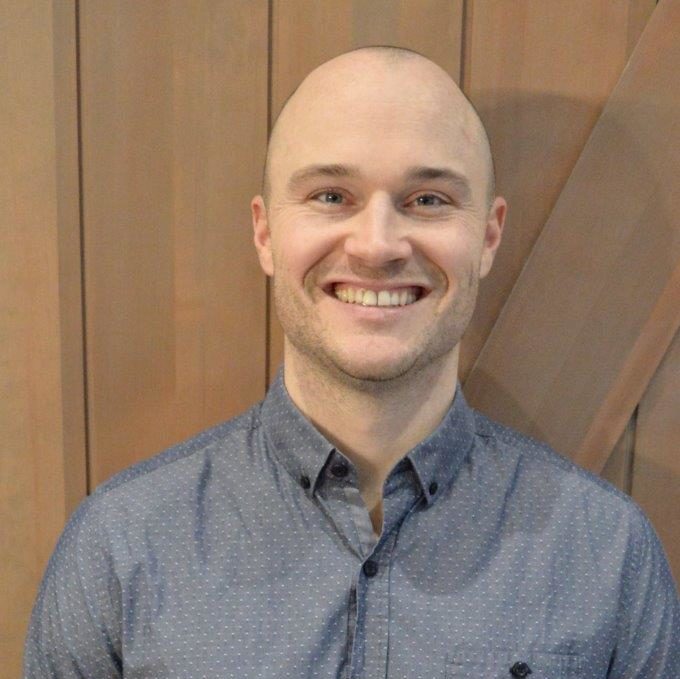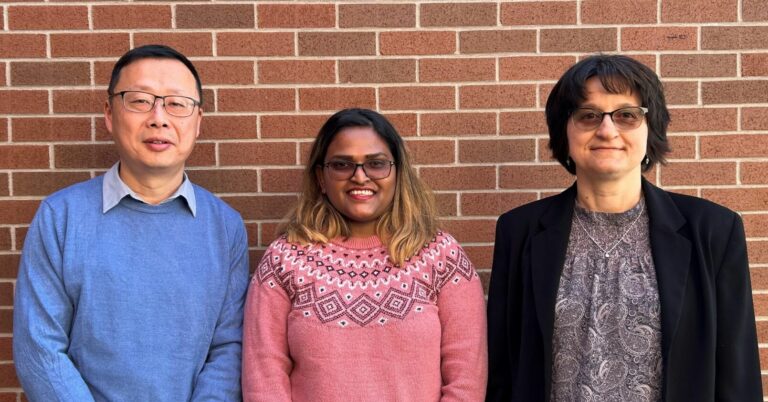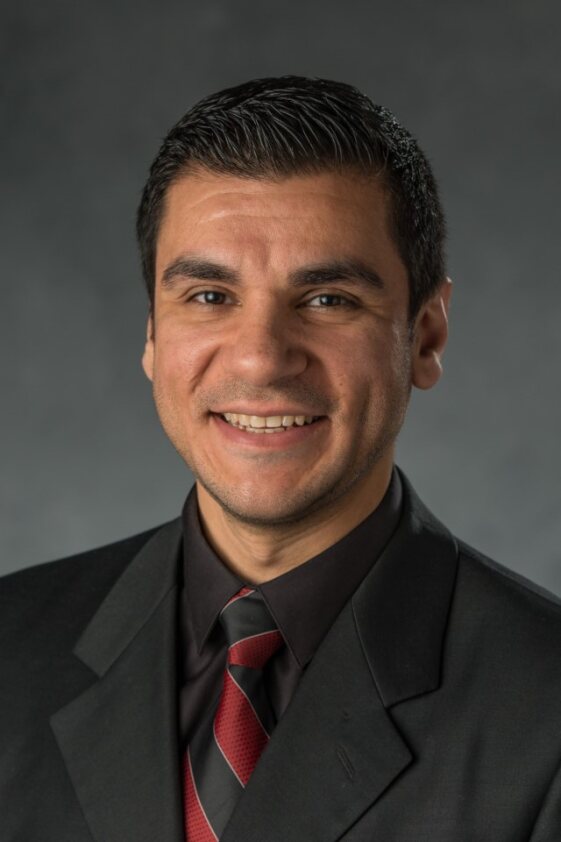Thanks to the availability of WeBWorK, an online open educational resource (OER) provided to students at no cost, homework shouldn’t be as stressful as usual for the hundreds of York University students enrolled in the Linear Algebra (MATH 1025) course this term.
WeBWorK allows them to practise solving challenging problems as often as they’d like and provides instantaneous feedback.

“In mathematics, you need to practise, and with this system, you can keep trying until you get it right,” said Andrew McEachern, an assistant professor and course director for linear algebra. “For retention, research shows that engaging with problems multiple times is best. We want students engaged and practising, and this system allows for low, no-stakes practice. There is no cost for failure.”
Online homework platforms aren’t new, but many of them are costly for students since they are owned by textbook publishing companies.
“Textbook companies have proprietary rights to their platforms and many of them have a lot of bells and whistles that we don’t need,” McEachern said. “This bare-bones system works and does 90 per cent of the job that expert systems do.”
WeBWorK is open source and very customizable. This means it can be downloaded for free, although there are significant costs associated with the server and staff resources. The Faculty of Science is covering these costs to provide the software free of charge to students.

Steven Chen, Kalpita Wagh and Violeta Gotcheva.
McEachern and other instructors approached the Faculty about installing WeBWorK and joined forces with Hovig Kouyoumdjian, associate dean of curriculum and pedagogy, and Violeta Gotcheva, director of information technology (IT) for the Faculty, to explore the idea. Gotcheva, along with Steven Chen, a systems administrator, and Kalpita Wagh, an IT learning technology support specialist in the Faculty of Science, met with instructors and IT support teams from other Canadian universities to discuss their experiences with WeBWorK. They also joined the worldwide WeBWorK user group to expand their understanding of its applicability and support requirements.
Although faculty members assumed the IT staff could easily upload the software and run it, Gotcheva explained to them that supporting the platform was more complicated.
“It’s essential to ensure any software we run has appropriate security, robustness, reliability and scalability,” she said. “This is accomplished by obtaining a server hosting service aligned with the software requirements and hiring skilled staff for system maintenance and user support. After determining this, we realized we needed to install the open-source WeBWorK platform relying on community support.”
Gotcheva, in collaboration with Kouyoumdjian, McEachern, and Michael Haslam and Stephen Watson – current and former Chairs of the Department of Mathematics & Statistics, respectively – created a business case for running the platform. They outlined the financial requirements for hosting and maintaining it and the cost savings that would accrue to students compared to the need for a proprietary platform. The Faculty of Science IT team partnered with Pamela Mills, assistant manager of University Information Technology System Management Services, and her team to use the University enterprise virtual server hosting. The WeBWorK pilot received a grant from the Faculty of Science Academic Equipment Fund to cover the server hosting costs, and the Faculty of Science IT team proceeded with the installation.
Now, the pilot is underway in all the linear algebra sections during the winter term.
“Testing the platform across all sections of the course was a bold move, as initially, we anticipated it being piloted only in Andrew’s section,” said Koyoumdjian. “We eagerly look forward to hearing about the experiences from both the faculty and the students.”
So far, said McEachern, instructors haven’t discovered any insurmountable problems with the platform, and the more than 700 students studying linear algebra this term seem satisfied. He has paired the homework platform with an online help forum on social media platform Discord to provide students with a means for asking questions and getting answers quickly.
“It’s amazing how many times other students pitch in with answers before I even get to the question,” McEachern said. “They just do it out of the goodness of their hearts.”
He also said his students are reporting much less anxiety about their homework than usual.
After the term is over, he, the other instructors and the team will review the success of the pilot, examining usage statistics and trends. They are also considering an informal survey of participants.
“It’s easy to use and it’s cost-effective during tough economic times,” said McEachern. “In my opinion, if even one student benefits, it’s worth it.”

Kouyoumdjian also sees it as a tool for student retention.
“Mathematics is a foundational subject, and by enriching our students’ practice opportunities, we set them up for success and better equip them for future career endeavours” he said. “This pilot is a stepping stone, and we plan to extend the use of this platform to other math courses. We’ve also received positive feedback from colleagues outside our Faculty, who expressed enthusiasm for implementing WeBWorK at York University, which indicates a growing interest in adopting such powerful open-source platforms in their own courses as well.”
In addition, noted Gotcheva, the United Nations considers OERs a public good, which aligns well with the York University Academic Plan’s commitment to furthering the United Nations Sustainable Development Goals.
“The Faculty of Science is committed to OERs,” said Kouyoumdjian. “Our aim is to promote the use of resources that are economically more feasible for our students and flexible enough to be reused, revised, remixed and redistributed. WeBWork aligns with these standards of OERs.”
